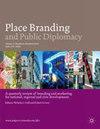Celebrity diplomacy during the Covid-19 pandemic? The chief state epidemiologist as “the face of the Swedish experiment”
IF 1.9
Q3 HOSPITALITY, LEISURE, SPORT & TOURISM
引用次数: 2
Abstract
Sweden’s distinctive approach to the pandemic has challenged its public image among domestic and foreign audiences. The Swedish government has primarily based its policy on Public Health Agency recommendations of physical distancing, rather than the adoption of new legislative measures issued by the cabinet and legislature. This approach has been critiqued, since it is based on liberal voluntary recommendations and nudging, as opposed to a strict lockdown of society. The Swedish take on Covid-19 then stands out internationally, not the least in comparison to its Scandinavian neighbors Denmark and Norway, two states that have opted for a more restrictive approach. Sweden’s high Covidrelated death toll has been linked to the country’s distinctive non-lockdown approach. Of importance, here is the Swedish government’s tendency to rely almost exclusively on the knowledge and expertise of the Public Health Agency rather than government-led policy-making. Chief State Epidemiologist Anders Tegnell has become “the face of the Swedish experiment”, increasingly known to global audiences, having acquired celebrity power, enabling him to influence the image of Sweden abroad. The perception of Tegnell’s influence has even led some of his most vocal critics to accuse him of deception and in so doing damaging the image of Sweden abroad (Pamment 2021). Yet, Tegnell’s acquired celebrity status is of a particular kind, and as such, is not located within the entertainment industry or common understandings of popular culture. Neither is Anders Tegnell a celebrity politician (Pace & Bergman Rosamond 2018, Wheeler 2013)—he is not an internationally recognized world leader nor located within the traditional institution of state-centered diplomacy. The absence of symbolic leadership on the part of more traditional Swedish political actors, combined with the decision to strictly follow the recommendations of scientists, nonetheless have led to a pronounced focus on Tegnell’s persona in traditional and digital media worldwide. Tegnell’s celebrity status, moreover, has been magnified by the urgency of the global health crisis itself, with Covid19 being the subject of many debates in the public sphere. In particular commentators have sought to understand the distinctiveness of the Swedish approach to Covid-19 and the absence of thoroughgoing restrictions. In his role as an expert civil servant, Tegnell represents the Public Health Agency’s efforts of “health diplomacy”, but his performance during the pandemic, and the reception thereof, surpasses the anonymous role of an expert advisor. Thus, Sweden’s Chief State Epidemiologist Anders Tegnell embodies traits of a celebrity diplomat by becoming the most visible public face of Sweden’s outlier Covid-19 strategy. Indeed, celebrities come in different shapes and forms, including entertainers, influencers, CEOs of big corporate entities such as Bill Gates, public intellectuals and many others (Bergman Rosamond & Gregoratti 2019). Moreover, celebrity diplomacy and humanitarianism are amplified by the blurriness between celebrity, diplomacy and the digitalization of media (Bergman Rosamond 2016). Below, we first demonstrate how Tegnell could be considered a celebrity diplomat – while challenging some of the prevalent patterns of celebrity in global politics. Second, we discuss how Tegnell’s celebrity diplomacy has shaped the perception of Sweden during the global health crisis. We propose that Tegnell’s public role both aligns with and disrupts narratives of the Swedish political model. We conclude by reflecting on the implications of expert celebrity for the future of public diplomacy practices and scholarly analyses.Covid-19大流行期间的名人外交?国家首席流行病学家被称为“瑞典实验的代言人”
瑞典对这一流行病采取的独特做法挑战了其在国内外观众中的公众形象。瑞典政府的政策主要基于公共卫生机构关于保持身体距离的建议,而不是采用内阁和立法机构颁布的新立法措施。这种做法受到了批评,因为它是基于自由的自愿建议和推动,而不是严格封锁社会。与斯堪的纳维亚邻国丹麦和挪威相比,瑞典对Covid-19的态度在国际上脱颖而出,这两个国家选择了更严格的措施。瑞典与新冠肺炎相关的高死亡人数与该国独特的非封锁方法有关。重要的是,瑞典政府倾向于几乎完全依赖公共卫生机构的知识和专业知识,而不是政府主导的决策。国家首席流行病学家安德斯·泰格内尔(Anders Tegnell)已成为“瑞典实验的代言人”,越来越多地为全球观众所知,他已经获得了名人效应,使他能够影响瑞典在国外的形象。对泰格内尔影响力的认知甚至导致他的一些最直言不讳的批评者指责他欺骗,这样做会损害瑞典在国外的形象(Pamment 2021)。然而,Tegnell获得的名人地位是一种特殊的类型,因此,不属于娱乐行业或流行文化的共同理解。安德斯·泰格内尔也不是名人政治家(Pace & Bergman Rosamond 2018, Wheeler 2013)——他既不是国际公认的世界领袖,也不属于传统的以国家为中心的外交机构。尽管如此,传统的瑞典政治角色缺乏象征性的领导,再加上严格遵循科学家建议的决定,使得泰格内尔在全球传统媒体和数字媒体上的形象受到了广泛关注。此外,全球卫生危机本身的紧迫性也放大了泰格内尔的名人地位,covid - 19已成为公共领域许多辩论的主题。评论人士尤其试图理解瑞典应对Covid-19方法的独特性,以及缺乏彻底的限制。作为一名专家公务员,泰格内尔代表了公共卫生署的"卫生外交"努力,但他在大流行期间的表现及其受到的接待,超出了专家顾问的匿名角色。因此,瑞典首席国家流行病学家安德斯·泰格内尔(Anders Tegnell)成为瑞典异常应对新冠肺炎战略最引人注目的公众形象,体现了名人外交官的特征。事实上,名人有不同的形态和形式,包括演艺人员、有影响力的人、比尔·盖茨等大公司的首席执行官、公共知识分子和许多其他人(Bergman Rosamond & Gregoratti 2019)。此外,名人外交和人道主义被名人、外交和媒体数字化之间的模糊所放大(Bergman Rosamond 2016)。下面,我们首先展示了Tegnell是如何被认为是一位名人外交家的,同时挑战了一些在全球政治中流行的名人模式。其次,我们讨论了泰格内尔的名人外交如何在全球卫生危机期间塑造了对瑞典的看法。我们认为,泰格内尔的公共角色既与瑞典政治模式的叙事保持一致,也破坏了这种叙事。最后,我们反思了专家名人对未来公共外交实践和学术分析的影响。
本文章由计算机程序翻译,如有差异,请以英文原文为准。
求助全文
约1分钟内获得全文
求助全文
来源期刊
CiteScore
3.80
自引率
13.30%
发文量
30
期刊介绍:
Place Branding and Public Diplomacy?is a pioneering journal and the first to concentrate on this fast-growing field. Its scope and reach is global and culturally unbiased. Its primary objective is to broaden the understanding of the nature purposes and benefits of both place branding and public diplomacy and to demonstrate how place branding and public diplomacy strategies are implemented in practice.Place branding is the practice of applying brand strategy and other techniques and disciplines - some deriving from commercial practice others newly developed - to the economic social political and cultural development of cities regions and countries. Public diplomacy is the process by which an international actor – often but not exclusively a country – conducts foreign policy by engaging a foreign public. Public Diplomacy and Place Branding are not synonyms but their overlaps are sufficient to justify a journal which considers both activities in their own right and at their point of convergence.Both Place Branding and Public Diplomacy are significantly but not exclusively concerned with reputation management.

 求助内容:
求助内容: 应助结果提醒方式:
应助结果提醒方式:


